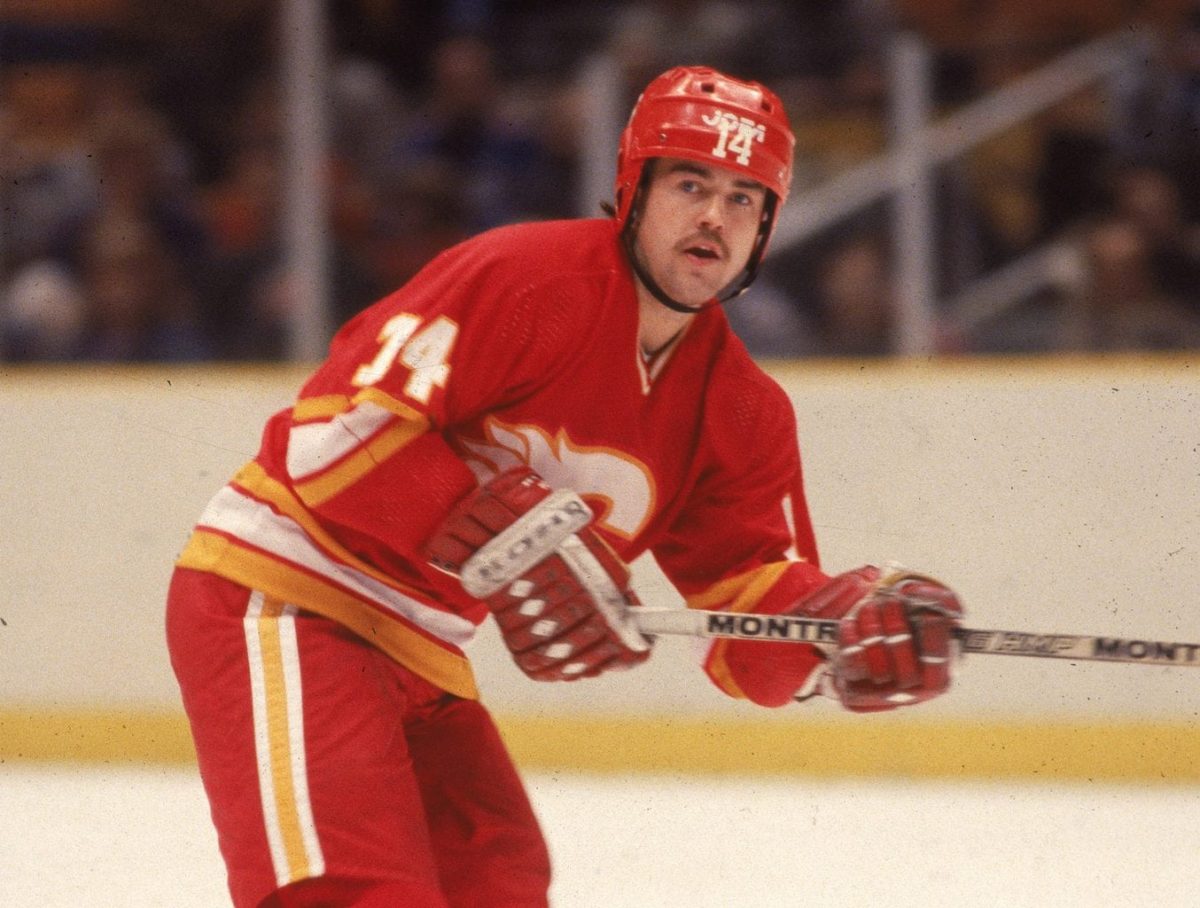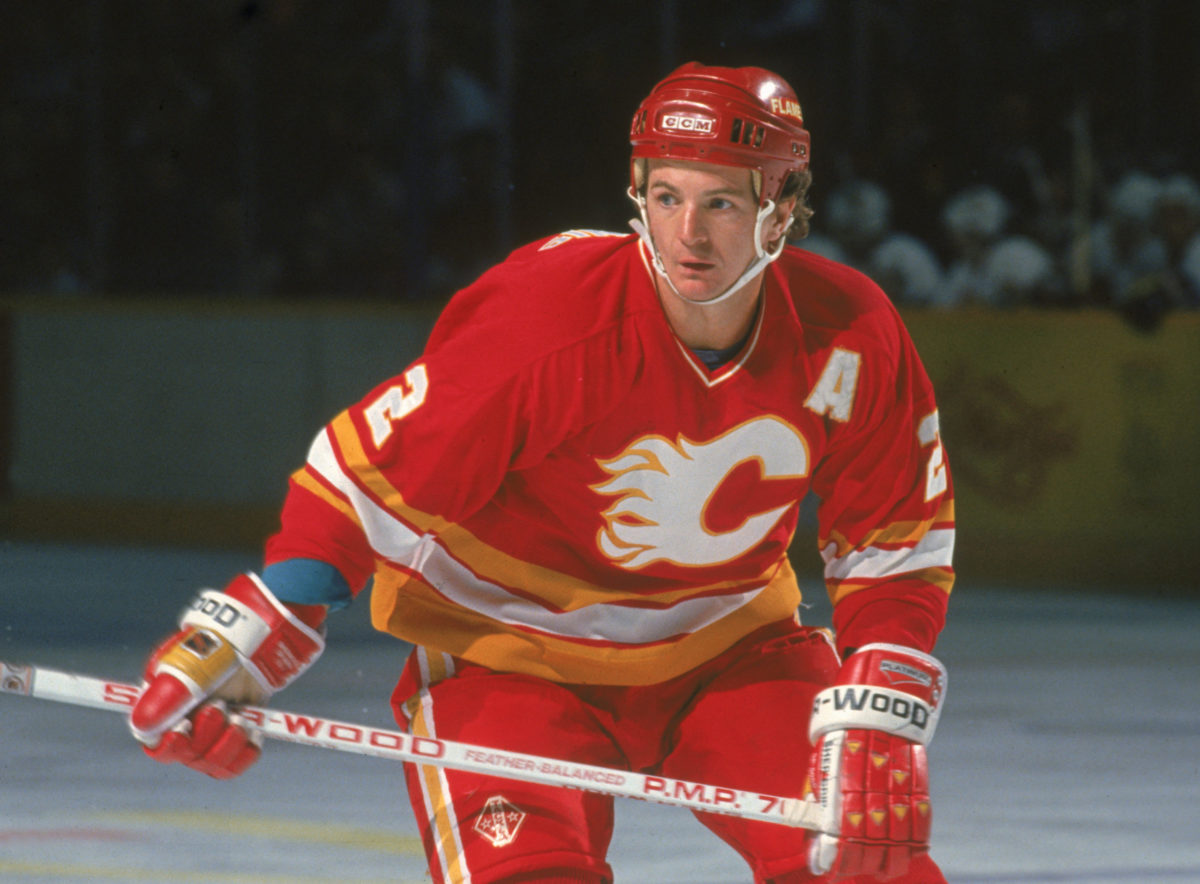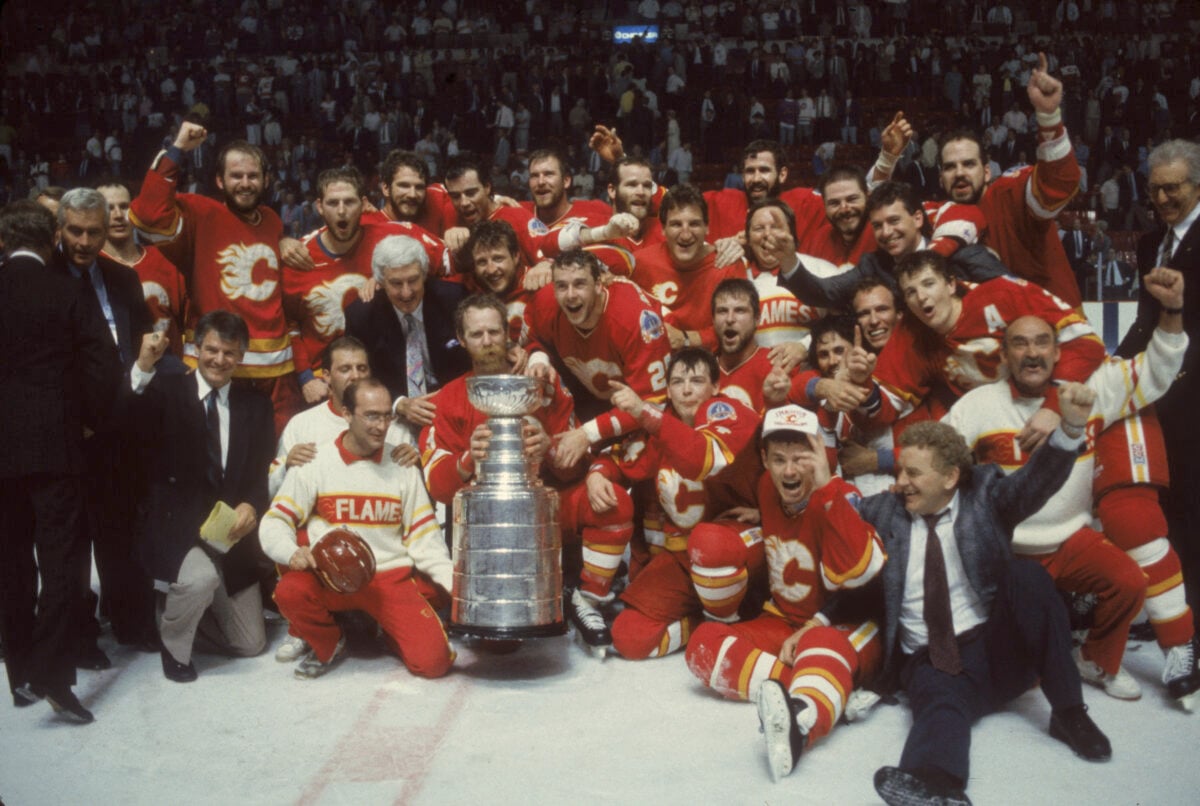During the 2022-23 season, the Calgary Flames celebrated their 50th season in the NHL, wrapping up their 42nd campaign in southern Alberta after eight years in Atlanta, Georgia. Unfortunately, the club did not qualify for the playoffs, marking the second time they didn’t challenge for the Stanley Cup in the last three years.
Historically, the Flames have won the Stanley Cup on one occasion, advancing to the Final on three other occasions during their 31 trips to the postseason. Despite just 10 appearances this century, the team did have a historic run in the 1970s and 1980s, cultivating a 16-year playoff streak, one of the best stretches the league has ever seen.
Related: Revisiting the Flames’ 16-Year Stanley Cup Playoff Streak
Surprisingly, the team has only advanced out of the first round 10 times, meaning there has yet to be a significant amount of monumental playoff runs. Furthermore, the Flames are 4-6 in second-round matchups, so we only have a limited number of storylines to revisit.
Let’s take a trip back in time to relive the best playoff drives in Flames’ history.
Flames Lose in Six Games During Semi-Finals (1981)
The Atlanta Flames debuted in Oct. 1972, qualifying for the playoffs in their second season, losing in the first round. After missing the postseason in 1974-75, the team rebounded the following year to kick off their 16-year streak.

Despite five consecutive first-round exits and relocation in 1980, the team finally broke through the proverbial glass ceiling during their inaugural season in Calgary. During the preliminary round, the Flames swept an Original Six team, the Chicago Blackhawks, in three games to draw the Philadelphia Flyers in the quarter-finals.
Even though Calgary built a 3-1 series lead, the Flyers came back to force a Game 7, which they lost by a score of 4-1, allowing the Flames to reach the semi-finals. Then, on the verge of advancing to the Stanley Cup Final for the first time, Calgary ran into the Minnesota North Stars, who took the series in six games.
Surprisingly, Guy Chouinard led the team in playoff scoring with 17 points in 16 games, while Ken Houston (15 points), Paul Reinhart (15), Bob MacMillan (14), Willi Plett (12), Kent Nilsson (12), and Don Lever (11) all reached double digits. Meanwhile, Pat Riggin played in 11 games, posting a 6-4 record, while Réjean Lemelin earned a 3-3 record in six games.
Although the Flames did not win that season, it was the year that Nilsson set the franchise record for points in the regular season, potting 131 in 82 games. Ultimately, this year was just a coming-out party, as the team was one of the more dominant franchises for the rest of the decade.
Flames End Seven-Year Playoff Drought, Lose in Stanley Cup Final (2004)
After qualifying for the playoffs 21 times from 1973-74 to 1995-96, the Flames set a franchise record for missing the postseason seven consecutive seasons from 1996-97 to 2002-03. As the last remaining members of the Stanley Cup win (1989) began to leave town, the franchise started to build around their new young superstar Jarome Iginla.
During the first round, the Flames lined up with the Vancouver Canucks, and this western Canadian matchup did not disappoint, going the distance with Calgary pulling out a 3-2 win in Game 7 in overtime. Although Iginla had two goals in the contest, Martin Gelinas was the hero, scoring a power-play goal just 1:25 into overtime.
Then, the Flames headed to Detroit to take on the Red Wings, beating the Original Six franchise in six games, with shutouts by Miikka Kiprusoff in Games 5 and 6. Now back in the Western Conference Final for the first time since 1989, the Flames took on the San Jose Sharks, eliminating their California rivals in six games, with each team posting a shutout in the series. After the win, Calgary punched their ticket to the Stanley Cup Final.
Although the 2004 Stanley Cup Final was the first time the Tampa Bay Lightning won, many fans remember the series for other reasons. Besides two of the top players in the league throwing down in a fight (Iginla vs. Vincent Lecavalier), Gelinas scored a potential game-winning goal in Game 6, only to have it called off because there wasn’t enough video evidence the puck crossed the line. Ultimately, the Flames would lose that game in overtime before falling in Game 7 by a 2-1 score.
Unsurprisingly, Iginla led all Calgary players with 22 points in 26 games while finishing third amongst his teammates with 45 penalty minutes. Meanwhile, Kiprusoff played all but 19 minutes in 26 games, earning a 15-11 record with five shutouts. Ultimately had the Flames captured the Stanley Cup, the voters would have struggled to select the MVP between these two.
Flames Advance to First Stanley Cup Final (1986)
Five years after playing in the third round of the Stanley Cup Playoffs for the first time, the Flames were on a mission to get over the hump in 1985-86. As the second-best team in the Campbell Conference, they found themselves on the right side of one of the worst bounces in NHL history, allowing them to ride the momentum to the Final.

After opening the playoffs with a three-game sweep over the Winnipeg Jets, Calgary drew the defending Stanley Cup champions, the Edmonton Oilers, in the second round. Ultimately, the teams traded wins through the first six games and were tied 2-2 heading into the third period of Game 7. Then, early in the final period, Oilers’ defenseman Steve Smith scored on his own net, giving the Flames a 3-2 win, breaking up the Edmonton dynasty.
Even though Calgary was back in the final four, it wasn’t easy as the St. Louis Blues also forced a Game 7, which the Flames escaped with a 2-1 victory, setting up a matchup with the Montreal Canadiens. Ultimately, riding the hot hand of rookie goalie and eventual Conn Smythe Trophy winner Patrick Roy, the Flames were no match for the Canadiens, who won the series in five games.
Statistically, a veteran and rookie led the team in scoring, with Joe Mullen and Al MacInnis collecting 19 points apiece, one more point than Lanny McDonald and Reinhart. Meanwhile, 21-year-old Mike Vernon was the main guy between the pipes, playing 21 games and earning a 12-9 record, compared to Lemelin, who went 0-1 in three games.
Flames Capture First Stanley Cup Title (1989)
During the 1987-88 regular season, the Flames finished as the top team in the league, winning the Presidents’ Trophy before getting swept by the eventual champion, the Oilers, in the second round. Surprisingly, Calgary got better the following season, setting franchise records for wins (54) and points (117) while earning their second consecutive Presidents’ Trophy.

Shockingly, the league’s best team was pushed to the brink in their opening-round series against the Canucks, needing overtime to win 4-3 and advance to the next matchup. Ultimately, their march to the Stanley Cup Final was easy after the first round, with the Flames losing just one game to the Blackhawks in the Conference Final after sweeping through the Los Angeles Kings in the Division Final.
As fate would have it, the Canadiens finished as the best team in the Wales Conference, setting up a rematch of the 1986 Final. Although most of the rosters had the same players, the Flames were powered to the championship this time in six games by their youthful core, led by Conn Smythe winner MacInnis.
Ultimately, the 1989 Flames lineup boasted five future Hockey Hall of Famers, including MacInnis, Mullen, McDonald, Doug Gilmour, and Joe Nieuwendyk. Statistically, 10 players reached double digits in scoring, with three collecting more than 20 points. Meanwhile, Vernon became the only goalie in team history to record 16 wins in a single postseason, going 16-5 in 22 games.
Historical Perspective
As of June 2023, the Flames are one of 20 teams to win a Stanley Cup, producing a 1-2 record in the Final. Ultimately, three of their best playoff runs have resulted in a shot at a championship, accounting for 9% of their postseason appearances. Overall, anyone who looks through Calgary’s history will recognize that the four best playoff runs represent different eras of the franchise.
Related: Calgary Flames Retired Numbers
Considering it’s already been 19 years since their last memorable run, the Flames are overdue for another chance at adding a second Stanley Cup banner to the Scotiabank Saddledome before it closes.
